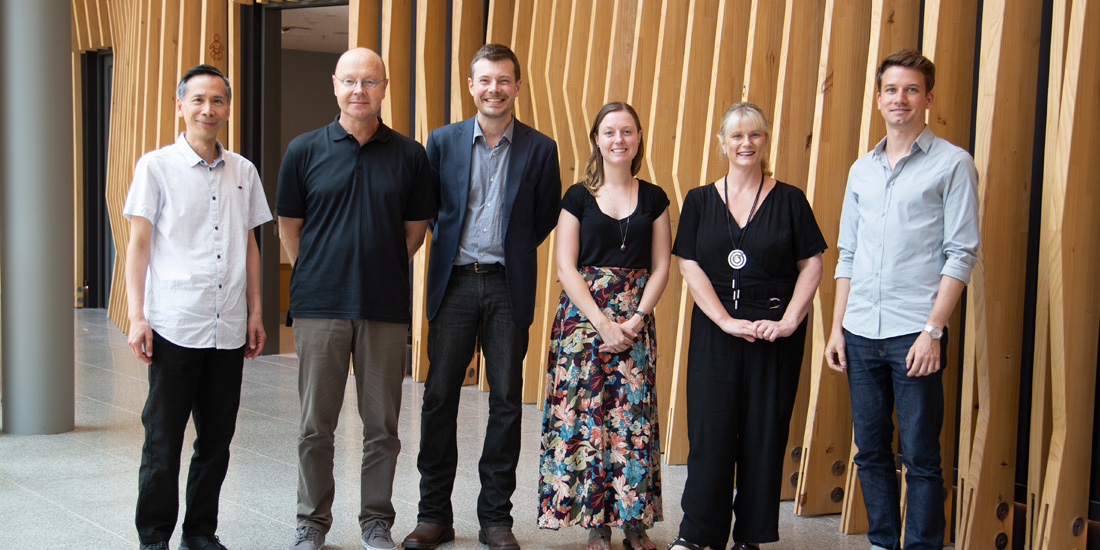 Wellcome Trust grant recipients. Photograph taken before the COVID-19 outbreak in Australia.
Wellcome Trust grant recipients. Photograph taken before the COVID-19 outbreak in Australia.
Orygen has received an AU$7 million endorsement of its plans to trial cannabidiol as a treatment for young people at ultra-high risk for psychosis.
UK-based research charity the Wellcome Trust has provided the grant for Orygen to hold a randomised controlled trial (RCT) of cannabidiol as a treatment for young people experiencing early psychosis.
Cannabidiol is one of hundreds of compounds found in the Cannabis sativa plant. It is non-addictive and is being increasingly used to treat a range of medical conditions including epilepsy and Parkinson’s Disease as well as anxiety and schizophrenia.
The project’s lead investigator, Professor Paul Amminger, said the Wellcome Trust funding would allow researchers to test cannabidiol in the ultra-high risk phase of psychosis disorder for the first time.
“We know that cannabidiol can reduce psychotic symptoms in people with schizophrenia who do not fully respond to conventional antipsychotic medication,” Professor Amminger said.
“The study aims to answer an important clinical question: can subthreshold psychotic manifestations be effectively treated with cannabidiol?”
The proposed study is a three-arm RCT with a placebo arm and two discrete drug doses: 600mg cannabidiol per day for 12 weeks or 1000mg cannabidiol per day for 12 weeks. A total of 405 patients (135 per arm) will be recruited across eight sites in Victoria, South Australia, Queensland and Western Australia.
The trial will be completed in partnership with Associate Professor Ashleigh Lin from Telethon Kids, Professor James Scott from QIMR Berghofer, and Dr Scott Clark from the University of Adelaide who will be principal investigators for the Perth, Gold Coast and Adelaide recruitment sites respectively.
Researchers from the University of Sydney, James Cook University, the Royal College of Surgeons Ireland and Deakin University will assist with data analysis.
Professor Amminger said the trial would measure a range of outcomes including improvement in psychotic symptoms, transition to psychotic disorder, safety, tolerability and cost-effectiveness.
“Existing antipsychotic medications often have side effects, which strongly limits their preventive use in early psychosis,” Professor Amminger said.
“Cannabidiol has antipsychotic properties and a very favourable risk-benefit ratio.”
In the past 25 years, Orygen has made significant progress in reducing the rate of progression to psychosis, reducing the duration of untreated psychosis and optimising care.
However, evidence-based treatment for people at risk of psychosis is still needed.
“No biological treatment has been firmly established for people with an at-risk mental state for psychosis,” Professor Amminger said.
“The most recent meta-analysis found no evidence to favour any specific intervention over others for psychosis prevention.”